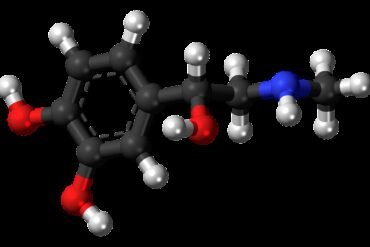Boost Your Immune System Naturally: Strengthening Your Body’s Natural Defenses

The immune system plays a crucial role in protecting our bodies from harmful pathogens and illnesses. While there is no magic pill or quick fix to boost your immune system, there are several dietary and lifestyle changes that can support and strengthen your body’s natural defenses. In this comprehensive guide, we will explore evidence-based tips and strategies to naturally enhance your immune health. From prioritizing quality sleep to incorporating immune-boosting foods into your diet, we will cover it all. So, let’s dive in and discover how you can optimize your immune system naturally.
nbsp;
Table of Contents
- Introduction
- Importance of Sleep for Immune Health
- The Power of Plant Foods in Strengthening Immunity
- Healthy Fats and Their Role in Boosting Immune Response
- The Benefits of Fermented Foods in Supporting Gut Health and Immunity
- The Impact of Added Sugars on Immune Function
- Exercise: A Key Player in Enhancing Immune Function
- The Role of Hydration in Supporting Overall Health and Immunity
- Stress Management: A Vital Component of a Strong Immune System
- Understanding the Limitations of Supplements in Boosting Immunity
- Debunking Myths and Unveiling the Truth About Immune-Boosting Nutrients
- Conclusion
1. Introduction
Maintaining a healthy immune system is essential for overall well-being. While it’s impossible to completely prevent illness, there are steps you can take to strengthen your body’s natural defenses. By adopting a holistic approach that combines healthy lifestyle choices and a balanced diet, you can support your immune system and optimize its function.
In this guide, we will explore evidence-based strategies to naturally boost your immune system. From the importance of quality sleep and the benefits of plant-based nutrition to the role of exercise and stress management, each section will provide valuable insights and practical tips to enhance your immune health.
2. Importance of Sleep for Immune Health
Getting adequate sleep is crucial for maintaining a strong immune system. Inadequate or poor-quality sleep has been linked to a higher susceptibility to sickness. Research shows that individuals who sleep fewer than 6 hours per night are more likely to catch a cold than those who get 6 hours or more of sleep each night[^1^].
To strengthen your immune system naturally, prioritize getting 7 or more hours of sleep each night as an adult. Teenagers require 8-10 hours, while younger children and infants need up to 14 hours[^3^]. Consistency in sleep patterns is also vital for optimal immune function. Establishing a regular sleep routine, ensuring a dark sleeping environment, and limiting screen time before bed can all contribute to better sleep quality[^4^].
3. The Power of Plant Foods in Strengthening Immunity
The role of nutrition in immune health should not be underestimated. Whole plant foods, such as fruits, vegetables, nuts, seeds, and legumes, are rich in nutrients and antioxidants that can bolster your body’s natural defenses. These foods contain antioxidants that combat inflammation by neutralizing harmful free radicals[^5^]. Chronic inflammation has been linked to various health conditions, including heart disease and certain cancers.
Additionally, the fiber present in plant foods promotes a healthy gut microbiome, which plays a crucial role in immune function. A diverse and balanced gut microbiome can enhance your immunity and prevent the entry of harmful pathogens through your digestive tract[^6^]. Fruits and vegetables are also abundant in immune-boosting nutrients like vitamin C, which has been shown to reduce the duration of the common cold[^7^].
Incorporating a variety of colorful fruits and vegetables into your diet can provide the necessary vitamins, minerals, and antioxidants to support your immune system naturally. Aim for at least 5 servings of fruits and vegetables per day, and consider incorporating them into meals, snacks, and smoothies.
4. Healthy Fats and Their Role in Boosting Immune Response
While it’s important to limit unhealthy fats in your diet, healthy fats can play a vital role in supporting immune function. Certain fats, such as those found in olive oil and salmon, have anti-inflammatory properties that can help boost your body’s immune response to pathogens[^8^]. Chronic inflammation can suppress the immune system, making it more susceptible to infections and illnesses.
Olive oil, in particular, contains anti-inflammatory compounds that have been associated with a decreased risk of chronic diseases like heart disease and type 2 diabetes[^9^]. Omega-3 fatty acids, found in fatty fish like salmon, as well as chia seeds, can also reduce inflammation and support immune health[^11^].
Incorporating healthy fats into your diet, such as olive oil, avocados, nuts, and seeds, can provide the necessary nutrients to support a strong immune system. However, it’s important to consume these fats in moderation as part of a balanced diet.
5. The Benefits of Fermented Foods in Supporting Gut Health and Immunity
The health of your gut microbiome is closely linked to your immune system. Fermented foods are rich in beneficial bacteria called probiotics, which can populate your digestive tract and promote a healthy balance of gut bacteria[^12^]. A flourishing gut microbiome can enhance your immune cells’ ability to differentiate between harmful pathogens and healthy cells[^13^].
Studies have shown that regular consumption of fermented foods can reduce the incidence of childhood infectious diseases[^14^]. Fermented milk, yogurt, sauerkraut, kimchi, kefir, and natto are all excellent sources of probiotics. If you don’t regularly consume fermented foods, probiotic supplements are another option to consider[^15^].
By incorporating fermented foods into your diet or taking probiotic supplements, you can support your gut health and improve your immune system’s ability to fight off infections.
6. The Impact of Added Sugars on Immune Function
Excessive consumption of added sugars and refined carbohydrates can have a detrimental effect on immune function. Emerging research suggests that added sugars contribute disproportionately to conditions such as overweight and obesity[^16^]. These conditions, in turn, can weaken the immune system and increase the risk of chronic health conditions like type 2 diabetes and heart disease[^18^][^21^].
High sugar intake can also lead to chronic inflammation, which can impair immune function. To support your immune system naturally, it’s important to limit your intake of added sugars. The World Health Organization recommends consuming less than 5% of your daily calories from added sugars, which is equivalent to about 2 tablespoons or 25 grams for someone on a 2,000-calorie diet[^22^].
By reducing your sugar intake and opting for healthier alternatives like whole fruits, you can provide your body with the necessary nutrients without compromising your immune health.
7. Exercise: A Key Player in Enhancing Immune Function
Regular exercise is not only beneficial for physical fitness but also plays a crucial role in boosting immune function. Moderate exercise has been shown to reduce inflammation and help immune cells regenerate regularly[^23^]. Even a single session of moderate exercise can enhance the effectiveness of vaccines in individuals with compromised immune systems[^23^].
Engaging in activities like brisk walking, jogging, swimming, or biking for at least 150 minutes per week can promote immune health and overall well-being[^24^]. Exercise can also help manage stress, another factor that can impact immune function. It’s important to find physical activities that you enjoy and make them a regular part of your routine.
By incorporating regular exercise into your lifestyle, you can enhance your immune system’s ability to fight off infections and maintain optimal health.
8. The Role of Hydration in Supporting Overall Health and Immunity
Proper hydration is essential for overall health, including immune function. Dehydration can lead to various complications such as headaches, reduced physical performance, impaired focus, digestion issues, and compromised heart and kidney function, all of which can increase your susceptibility to illnesses[^25^].
To support your immune system naturally, it’s important to drink enough fluids throughout the day to maintain adequate hydration. Water is the best choice, as it is calorie-free and free from additives and sugar[^25^]. While tea and juice can also contribute to hydration, it’s crucial to limit your intake of fruit juice and sweetened tea due to their high sugar content[^26^][^27^].
Listen to your body’s thirst signals and drink when you’re thirsty. If you engage in intense exercise, work outdoors, or live in a hot climate, you may need to increase your fluid intake accordingly[^28^]. It’s especially important for older adults to drink regularly, even if they don’t feel thirsty, as their bodies may not signal thirst adequately[^28^].
By prioritizing hydration and drinking enough water throughout the day, you can support your immune system and overall health.
9. Stress Management: A Vital Component of a Strong Immune System
Stress can have a significant impact on immune function. Prolonged or chronic stress can lead to inflammation and imbalances in immune cell function[^7^][^9^]. It can also weaken the immune response, making individuals more susceptible to infections and illnesses, particularly respiratory infections[^29^].
To support your immune system naturally, it’s important to prioritize stress management. There are various techniques and activities that can help reduce stress levels, such as meditation, exercise, journaling, yoga, and mindfulness practices[^29^]. Engaging in these activities regularly can help reduce stress and promote overall well-being.
It’s important to find stress management techniques that work best for you and incorporate them into your daily routine. By managing stress effectively, you can support your immune system and enhance your overall health.
10. Understanding the Limitations of Supplements in Boosting Immunity
While it may be tempting to turn to supplements for a quick immune boost, it’s important to understand their limitations. There is no magic pill or supplement that can magically enhance your immune system. The immune system is a complex network of cells and processes that cannot be easily manipulated by taking a supplement.
While certain vitamins and minerals, such as vitamin C, zinc, and vitamin D, play a role in immune function, it’s best to obtain these nutrients from whole foods rather than relying solely on supplements. Whole foods provide a wide range of nutrients and antioxidants that work synergistically to support immune health.
If you suspect you have a nutrient deficiency, it’s best to consult with a healthcare professional before taking any supplements. They can assess your specific needs and guide you on the appropriate use of supplements, if necessary.
11. Debunking Myths and Unveiling the Truth About Immune-Boosting Nutrients
There are many myths and misconceptions surrounding immune-boosting nutrients. Let’s separate fact from fiction and uncover the truth about some commonly discussed nutrients.
Myth: Chicken soup can cure a cold. While chicken soup has been a popular remedy for colds, it cannot cure the common cold or other illnesses. However, chicken soup can provide hydration and some relief from cold symptoms due to its anti-inflammatory properties[^30^].
Myth: Vitamin C prevents illness. While vitamin C plays a crucial role in immune function, taking high doses of vitamin C before the onset of a cold does not prevent illness. However, it may help shorten the duration of a cold if taken at the early stages[^30^].
Myth: Dairy increases mucus production. Despite popular belief, there is no scientific evidence to support the claim that dairy products increase mucus production during illness[^30^].
While certain nutrients, such as beta carotene, vitamin C, vitamin D, zinc, and probiotics, support immune health, it’s important to remember that a balanced diet and overall healthy lifestyle are key to maintaining a strong immune system.
12. Conclusion
Boosting your immune system naturally requires a holistic approach that combines healthy lifestyle choices and a balanced diet. Prioritizing adequate sleep, consuming a variety of plant-based foods, incorporating healthy fats, and managing stress are just a few strategies that can support your immune system’s optimal function.
While supplements can play a role in addressing specific nutrient deficiencies, it’s best to obtain nutrients from whole foods whenever possible. Whole foods provide a wide range of nutrients and antioxidants that work together synergistically to support immune health.
By adopting these evidence-based tips and strategies, you can strengthen your body’s natural defenses and enhance your overall well-being. Remember, maintaining a strong immune system is a lifelong journey, and small changes can make a significant difference in your immune health.
So, take action today and prioritize your immune system by making healthy choices that support your body’s natural defenses.


























